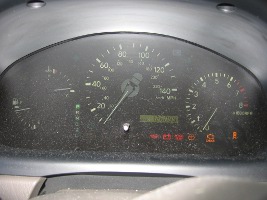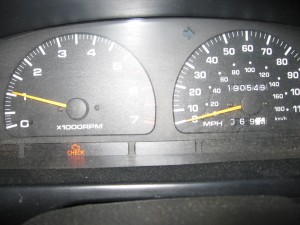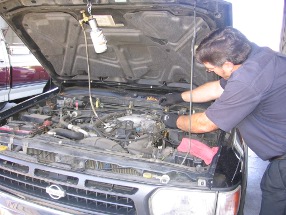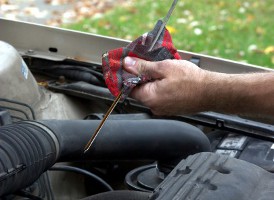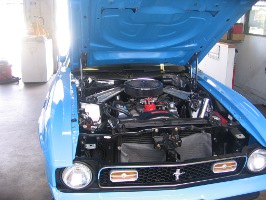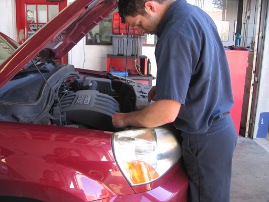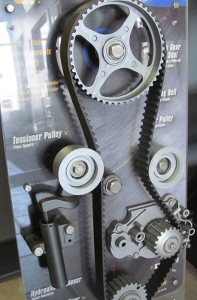 Let’s address a very important maintenance item for everyone in Denver – timing belt replacement. It’s important because letting this one slide can lead to very expensive engine damage.
Let’s address a very important maintenance item for everyone in Denver – timing belt replacement. It’s important because letting this one slide can lead to very expensive engine damage.
Your timing belt choreographs the timing of your combustion process. Your pistons travel up and down in the cylinder. Intake valves open at the right time to let in air and fuel, they close at the right time to allow the fuel to burn and then the exhaust valves open at the right time to let out the exhaust. All these things happen thousands of times a minute and it’s your timing belt that makes sure the valves are opening and closing at precisely the right time. If the timing is off, your engine won’t run. And that’s the best case scenario.
The worst case is that a valve is opening at the wrong time and collides with the piston. The result is bent valves and maybe even more damage to the cylinder head. Repairs can run into several thousand dollars.
Timing belts just wear out naturally so you want to replace a worn belt before it slips or breaks. Check your owner’s manual or with your service adviser at Express Car Care in Denver to see when they recommend you replace the timing belt. If you’ve never replaced your timing belt and have 60,000 or more miles on the clock, talk with your service adviser right away to see if you’re due.
On some engines, the water pump is driven by the timing belt as opposed to the serpentine belt. If that’s the case, it’s a good idea to replace the water pump when you’re replacing the timing belt, and vice versa since much of the same work has to be done for either. The same is true for the timing belt tensioner – it should be inspected and possibly replaced.
Timing belt replacement is one of the more expensive routine maintenance items on your service schedule. But not replacing your timing belt can lead to some of the most expensive repairs you’re likely to ever have.

